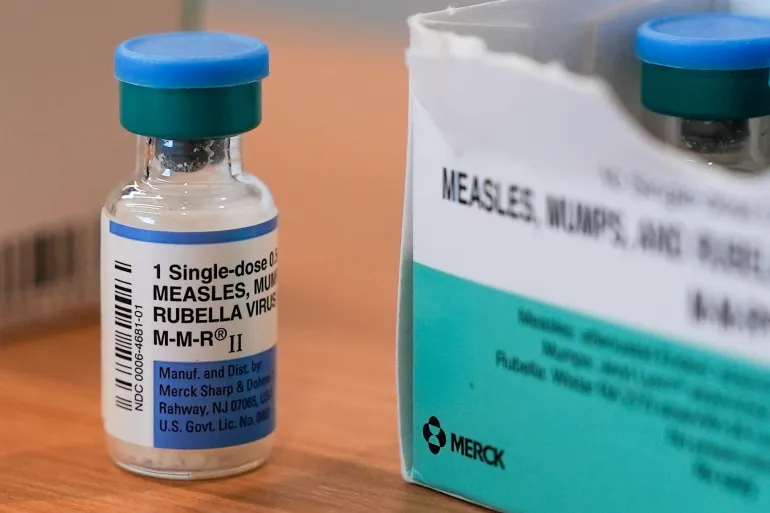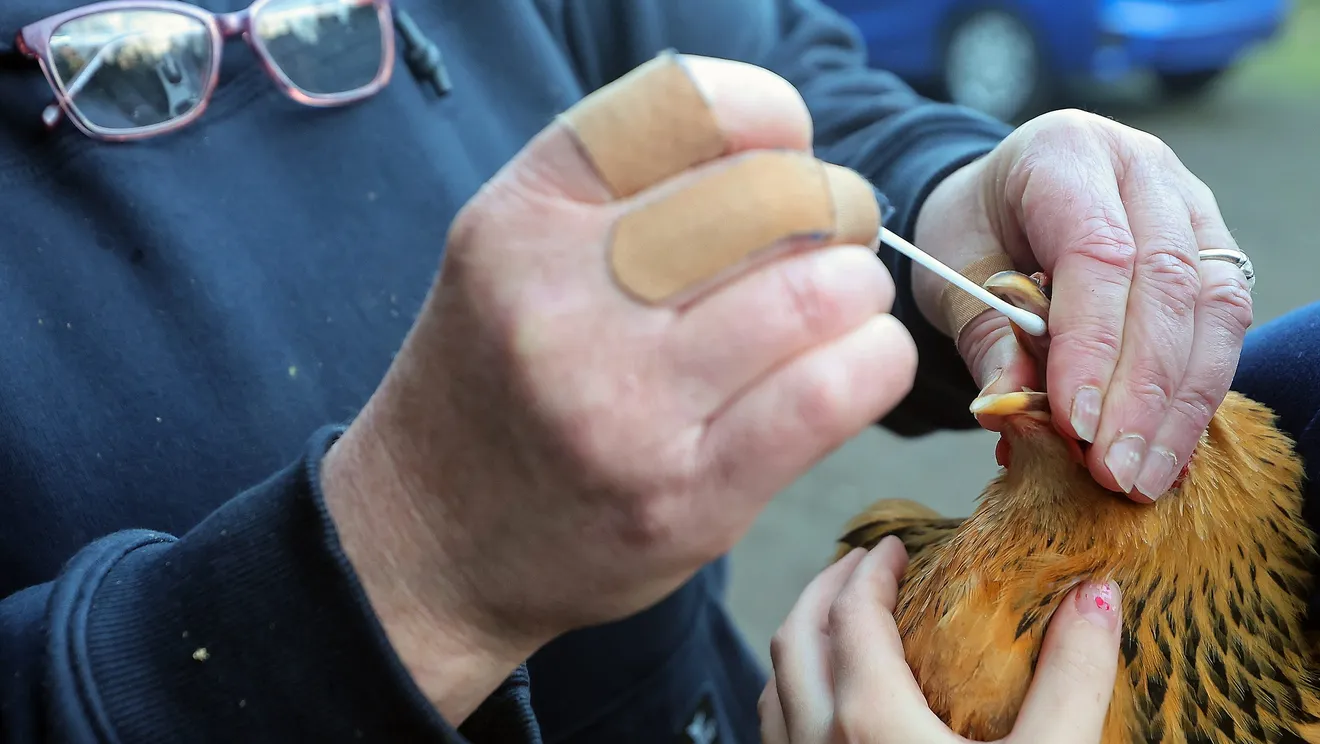Measles Outbreaks Across North America Rise
North America is currently experiencing a significant and concerning resurgence of measles outbreaks across the United States, Canada, and Mexico. This rise in cases has prompted the World Health Organization (WHO) to assess the risk of measles in the region as “high,” in contrast to a “moderate” risk globally.

Measles Outbreaks Across North America Rise
Experts largely attribute this spread to declining vaccination rates, driven by growing vaccine hesitancy and the circulation of misinformation about vaccines.
Understanding Measles
Measles is a highly contagious viral illness caused by a virus transmitted through the air. It spreads very easily when an infected person coughs or sneezes, releasing virus-laden droplets into the air. The virus can remain active and contagious in the air or on infected surfaces for up to two hours. Its extreme contagiousness means that one person infected with measles can infect up to 9 out of 10 unvaccinated people close by.
Recognizing Symptoms and Complications
The initial measles symptoms often resemble a common cold or flu, including a high fever, cough, runny nose, red or watery eyes, and sensitivity to light. A few days after the onset of these initial symptoms, a characteristic red, blotchy rash typically appears, starting on the face and neck before spreading downwards across the rest of the body. Fatigue and loss of appetite are also common during the illness.
While many people recover from measles within two to three weeks, the virus can lead to serious complications, particularly in vulnerable populations such as young children, pregnant women, and individuals with 1 weakened immune systems. These complications can include ear infections, severe diarrhea, pneumonia (a leading cause of death in young children with measles), and encephalitis (brain swelling).
Encephalitis can result in permanent disability or even be fatal. The fatality rate for measles varies significantly; in wealthier countries with robust healthcare systems, it causes about one death in every 5,000 cases, but in lower-income regions with weaker healthcare infrastructure, the fatality rate can tragically be as high as one in 100 cases.
The Impact of Vaccination: Before and After
Before the introduction of the measles vaccine in 1963, measles was a common childhood illness globally. In the United States alone, an estimated 3 to 4 million cases were reported annually, resulting in hundreds of deaths and thousands of hospitalizations each year. Following the widespread adoption of the measles vaccine, the number of cases plummeted.
By 2000, measles was officially declared “eliminated” in the US, meaning there had been no continuous transmission of the disease within the country for a period exceeding 12 months. This achievement relied on maintaining high levels of herd immunity through vaccination.
What is Herd Immunity?
Herd immunity, also known as community immunity, occurs when a sufficient percentage of a population becomes immune to a disease, either through vaccination or prior infection. When a high proportion of people are immune, the disease finds it difficult to spread because there are too few susceptible individuals for it to infect.
This significantly reduces the likelihood of outbreaks and helps to protect those who cannot be vaccinated for medical reasons, such as infants too young to receive the MMR vaccine, individuals with certain allergies, or those with weakened immune systems due to conditions or treatments. The percentage of immunity needed for herd immunity varies depending on how contagious a disease is; for measles, due to its extremely high transmissibility, approximately 95 percent of a community needs to have immunity to effectively stop its spread.
Experts emphasize that the safest and most reliable way to achieve and maintain herd immunity is through vaccination, given the risks associated with natural measles infection.
The Measles Vaccine (MMR) and Its Effectiveness
The primary tool for preventing measles is vaccination, typically administered as part of the MMR vaccine, which protects against measles, mumps, and rubella. According to the WHO, global measles vaccination efforts prevented an estimated 31.7 million deaths between 2000 and 2020, underscoring the vaccine’s immense impact on global health.
Public health agencies state that two doses of the MMR vaccine provide about 97 percent protection against the measles virus. The vaccine is usually given as part of routine childhood immunization programs; the first dose is typically administered around 12 months of age, and the second dose is given later, often around three years and four months of age (as a child nears pre-school age), as is common in countries like the United Kingdom.
While breakthrough cases in vaccinated individuals can occur, they are rare and the resulting illness is usually mild.
Current Outbreaks in North America
North America is currently facing a significant resurgence in measles cases. Across the US, Canada, and Mexico, more than 2,500 confirmed cases have been reported recently. Tragically, there have been four deaths linked to these outbreaks: three in the United States and one in Mexico. The current wave of outbreaks is believed to have begun in late 2024 in Ontario, Canada, before spreading to areas in Texas and northern Mexico in early 2025.
Mennonite communities, which are often historically under-vaccinated, have been notably affected and have accounted for a significant share of cases in some regions. An April report from the WHO highlighted the alarming increase, stating that the number of measles cases in the Americas during the first three months of 2025 was 11 times higher than during the same period in 2024.
Specific regional data reveals the scale:
- United States: The US has reported 935 confirmed measles cases across 30 states. Texas has been the epicenter of the outbreak, accounting for a substantial 683 cases. Other affected states include New Mexico (67 cases), Oklahoma (16), and Kansas (37). The outbreaks have also resulted in deaths in the US for the first time since 2015, with three fatalities occurring between February and April, including two unvaccinated children in Texas and one unvaccinated adult in New Mexico. The current caseload is approaching the 1,274 cases reported across 31 states in 2019, which was the country’s most significant outbreak since 1992, although there were no deaths reported in 2019.
- Canada: Canada is experiencing its most severe measles outbreak in over 25 years. Since mid-October 2024, Ontario alone has recorded more than 1,000 cases. Canadian officials confirmed that the outbreak originated from a large gathering in New Brunswick province that involved Mennonite communities, who often tend to avoid modern technology and medicine, including conventional healthcare interventions like vaccination.
- Mexico: In Mexico, the number of measles cases has risen sharply this year, primarily in the northern state of Chihuahua, where 786 cases have been reported so far, a stark contrast to the seven cases reported in the entire country in 2024. The outbreak in Chihuahua also tragically resulted in one death in early April, a 31-year-old unvaccinated man from Ascension.
Why Measles Cases Are Increasing
Public health experts globally, including the WHO and the US Centers for Disease Control and Prevention (CDC), point to a clear primary reason for the rise in measles cases: fewer people are receiving the MMR vaccine, causing vaccination rates to fall below the critical 95 percent threshold needed for herd immunity. This decline is significantly driven by increasing vaccine hesitancy, fueled by the spread of misinformation and distrust in public health institutions and pharmaceutical companies.
In some US states and Canadian provinces, policies allowing non-medical exemptions for vaccines—such as those based on personal or religious reasons—are becoming more common. This leads to the formation of clusters or pockets of unvaccinated individuals within communities.
When measles is introduced into these vulnerable clusters, it can spread rapidly because there is not enough herd immunity to stop its transmission chain. Officials also point to the close connections and frequent travel between affected communities in the US, Canada, and Mexico. Groups like some Mennonite congregations, who have strong cross-border ties and historically lower vaccination rates, inadvertently facilitate the spread of the virus from one region to another when individuals travel between their communities in different countries.
Understanding Vaccine Hesitancy and Exemptions
Vaccine hesitancy is complex and stems from various factors, including fears about potential side effects (many of which are minor and temporary, such as fever or redness at the injection site), distrust of pharmaceutical companies or government agencies responsible for vaccine approval and distribution, and personal or religious beliefs.
The decision to seek non-medical exemptions for childhood vaccinations reflects this hesitancy. Data from the US CDC for the 2023-2024 school year showed that exemptions from one or more vaccines were claimed by parents or caregivers for 3.3 percent of preschool children, an increase from 3 percent the previous year.
Exemption rates were higher in 40 states and the District of Columbia, with 14 states reporting exemption rates exceeding 5 percent, creating significant vulnerabilities to outbreaks in those areas. The historical hesitancy within some Mennonite groups regarding modern medicine and vaccination has made their communities particularly susceptible to the current outbreaks, with a significant share of recent measles cases concentrated within this population.
Addressing Misinformation and Concerns
One of the most persistent and harmful myths contributing to vaccine hesitancy is the thoroughly debunked claim that vaccines, particularly the MMR vaccine, cause autism. This false belief originated from a flawed 1998 study that has since been widely discredited, retracted by the medical journal that published it, and proven to be based on manipulated data.
Despite being scientifically refuted by numerous subsequent large-scale studies, this misinformation continues to circulate, particularly online and on social media platforms, making it challenging for public health agencies to counter effectively and eroding public trust in vaccines. Addressing vaccine hesitancy requires targeted, accurate communication campaigns to counter misinformation and build trust in the safety and effectiveness of vaccines.
The Political Context: RFK Jr.’s Stance
In the United States, the discussion around vaccination rates and public health response has been further complicated by political factors, including the appointment of Robert F. Kennedy Jr. as US Secretary of Health and Human Services. Kennedy is a long-standing vaccine skeptic who has repeatedly promoted false claims about vaccines.
Health experts expressed concern following his appointment, especially given the rise in measles cases. Kennedy has reiterated scientifically disproven claims, including the false link between vaccines and autism, and an unfounded claim that the MMR vaccine contains “aborted fetus debris.” Health experts have debunked the “fetus debris” claim, explaining that the rubella component of the vaccine was developed using lab-grown cells that were copied from a single fetal sample obtained in the 1960s; these cell lines have been multiplied in laboratories for decades, and the cells themselves are removed during the vaccine manufacturing process, so there is no fetal tissue in the final shot.
Kennedy has also faced criticism for reportedly downplaying the severity of the current measles outbreak and for promoting unproven treatments for measles, such as vitamin A supplements and cod liver oil. Health experts emphasize that while vitamin A can be supportive care in certain circumstances, these do not replace the proven effectiveness of vaccination and are not backed by strong scientific evidence as standalone treatments for measles.
Furthermore, critics argue that major changes initiated by Kennedy within the Department of Health and Human Services, including reportedly firing thousands of employees and cutting budgets for key agencies like the CDC, could weaken the country’s infrastructure and capacity to effectively monitor, respond to, and control future health emergencies and outbreaks.
Public Health Response Strategies
In response to the current measles outbreaks, public health agencies in the affected countries are implementing various strategies to control the spread. These typically include rapidly identifying confirmed measles cases, conducting thorough contact tracing to identify individuals who may have been exposed, and recommending vaccination for unvaccinated individuals who may have been exposed (post-exposure prophylaxis).
In some situations, health officials may also recommend or implement isolation or quarantine measures for infected individuals and their close contacts to prevent further transmission, particularly within vulnerable communities or settings like schools. Effective outbreak control requires swift action and coordination between health authorities.
Global Health Security Implications
The rise in measles outbreaks in North America is not an isolated phenomenon but part of a broader global trend linked to disruptions in routine vaccination programs during the COVID-19 pandemic and the global spread of vaccine hesitancy. These outbreaks underscore the interconnectedness of global health security.
Due to international travel, diseases can quickly spread across borders. Maintaining high vaccination rates everywhere is crucial to prevent the re-establishment of eliminated diseases like measles and to protect populations worldwide from outbreaks that originate elsewhere.
A Preventable Resurgence
The resurgence of measles outbreaks across the US, Canada, and Mexico is a serious public health challenge directly linked to falling vaccination rates below the level needed for herd immunity. Measles is a highly contagious and potentially dangerous disease, but it is effectively preventable with the safe and highly effective MMR vaccine. The spread is being facilitated by vaccine hesitancy, misinformation, and the resulting creation of vulnerable pockets of unvaccinated individuals.
Addressing this requires a concerted effort to increase vaccine uptake, counter false information with accurate public health messaging, strengthen immunization programs, and maintain robust public health infrastructure capable of monitoring and responding to outbreaks. While political factors and misinformation campaigns add complexity, the fundamental path to controlling measles and protecting communities lies in ensuring that vaccination rates are restored to levels necessary to prevent this preventable resurgence.





